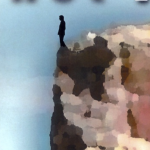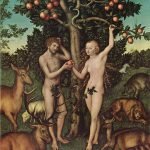Door niets werd de onbenulligheid van de Nederlandse politiek en (de meeste) televisiejournalistiek beter geïllustreerd dan door de Buitenhof uitzending van afgelopen zondag. In een uur slaagden interviewer Paul Witteman en premier Marc Rutte er in de tijd te vullen met volstrekt nietszeggende prietpraat. Wat bijvoorbeeld niet aan de orde kwam was een vraag in de trant van: ‘meneer Rutte, u streeft voortdurend naar economische groei, maar weet u dan niet dat duurzame groei voorlopig niet mogelijk is en alle groei voorshands bijdraagt tot de klimaatcatastrofe waar we in volle vaart op af stevenen? Kan u dat helemaal niet schelen?’ *) Of: ‘meneer Rutte: ‘u streeft voortdurend naar economische groei, maar weet u dan niet dat alle groei voorshands bijdraagt tot een steeds grotere ongelijkheid in de wereld? Hoe denkt u dat op te lossen, of althans die trend te keren?’ Enzovoort.
Van premier Rutte kan je je deze onnozelheid nog voorstellen – hij heeft per slot nog nooit iets anders gezegd en bovendien wordt hem, noch door de journalistiek, noch door de tweede kamerleden ooit het vuur na aan de schenen gelegd. En ook van Paul Witteman had ik niet meer verwacht, na een leven waarin hij voortdurend lof heeft geoogst en zijn ego daardoor uiteraard is gegroeid tot onhanteerbare proporties. Maar van de redactie van Buitenhof. . . ? Treurig.
Ik ben door vrienden, relaties en familieleden vaak getypeerd als een doemdenker of alarmist. Zelf zie ik dat zo niet. Im zie mezelf meer als iemand die de werkelijkheid zonder omwegen onder ogen ziet, maar daarnaast hoop houdt op een waardige wereld (en dat ook uitdraagt). Eigenlijk ben ik te optimistisch. Dat blijkt bijvoorbeeld uit het boek dat ik met Jan Paul van Soest in 2008 heb gepubliceerd: De Aarde heeft koorts. Hoewel we weliswaar een doemscenario van 4 graden opwarming als waarschijnlijkheid beschrijven blijken we daarbij op twee manieren veel te optimistisch te zijn geweest. In de eerste plaats is een opwarming van 4 graden of meer inmiddels vrijwel zeker, en in de tweede plaats zijn de door ons aldaar beschreven gevolgen verre onderschat. Bovendien besteden we in dat boek veel aandacht aan wat we er nog aan zouden kunnen doen, en spreken we de hoop uit dat dit ook gaat gebeuren. Maar zoals we allen weten is dat niet gebeurd, en zijn we ook wat dat betreft door de werkelijkheid achterhaald.
 Wie echt wil weten hoe het er met de wereld voorstaat leze The Uninhabitable Earth van David Wallace-Wells uit New York Magazine. **) Als u dat doet moet u wel doorlezen tot het eind, anders eindigt u in een depressie. De laatste alinea biedt nog enige hoop.
Wie echt wil weten hoe het er met de wereld voorstaat leze The Uninhabitable Earth van David Wallace-Wells uit New York Magazine. **) Als u dat doet moet u wel doorlezen tot het eind, anders eindigt u in een depressie. De laatste alinea biedt nog enige hoop.
Maar de vraag is natuurlijk wel, als het er echt zo rampzalig voorstaat met onze wereld, en er nog maar zo weinig aan te doen lijkt, waarom zouden we daar dan nog aandacht aan geven? Daar worden we dan immers alleen maar treurig van? Waarom zouden we niet leven vanuit een houding van’ Na ons de zondvloed’?
Toch denk ik dat het wel degelijk zinnig is om de werkelijkheid zoals die is onder ogen te zien, hoe beroerd er dat ook uitziet. Maar het hangt er daarbij wel van af hoe we met die waarneming omgaan. Daarover hoop ik de volgende week met u te spreken.
*) Zie bijvoorbeeld het interview met Kate Raworth, econoom, in NRC/Handelsblad van 17 Januari j.l.
**) https://nymag.com/daily/intelligencer/2017/07/climate-change-earth-too-hot-for-humans.html

 Wat zal het worden? Zal de post-humane mens, de homo spiritus, meester blijven over de intelligentie-systemen, of zullen we er slaaf van worden (homo servus)? En in het laatste geval: wie zijn de meesters? De (super-)rijke bezitters van de systemen? Maar zij zijn niet in staat die systemen te programmeren. Dus misschien zijn het de weinige techneuten die deze systemen nog min of meer begrijpen, en ze min of meer kunnen programmeren die de werkelijke meesters zijn. In dat geval mag je hopen dat zij geen cyborgs zijn, want dan is de kans niet uitgesloten dat de zelflerende systemen de macht overnemen, en de techneuten zelf ook slaven worden.
Wat zal het worden? Zal de post-humane mens, de homo spiritus, meester blijven over de intelligentie-systemen, of zullen we er slaaf van worden (homo servus)? En in het laatste geval: wie zijn de meesters? De (super-)rijke bezitters van de systemen? Maar zij zijn niet in staat die systemen te programmeren. Dus misschien zijn het de weinige techneuten die deze systemen nog min of meer begrijpen, en ze min of meer kunnen programmeren die de werkelijke meesters zijn. In dat geval mag je hopen dat zij geen cyborgs zijn, want dan is de kans niet uitgesloten dat de zelflerende systemen de macht overnemen, en de techneuten zelf ook slaven worden. niet door het netwerk gedomineerd willen worden. Zelfs is het denkbaar dat deze mensen op een bewuste wijze gebruik kunnen maken van KI, terwijl ze zelf meester blijven. Deze mensen zijn dan geen cyborg maar een verbeterde versie van de humane mens: de homo spiritus.**)
niet door het netwerk gedomineerd willen worden. Zelfs is het denkbaar dat deze mensen op een bewuste wijze gebruik kunnen maken van KI, terwijl ze zelf meester blijven. Deze mensen zijn dan geen cyborg maar een verbeterde versie van de humane mens: de homo spiritus.**) Gaan zelflerende computersystemen (Kuntsmatige intelligentie, KI of AI) de mensheid overheersen? Je hoort daar de laatste tijd heel veel over – het lijkt wel een hype (Kunstmatige intelligentie, van hype naar hype, door Christian Jongeneel in het Technisch Weekblad van 8 december). Ik doe daar graag aan mee – dus hierover mijn eerste blog (het zal niet het laatste zijn).
Gaan zelflerende computersystemen (Kuntsmatige intelligentie, KI of AI) de mensheid overheersen? Je hoort daar de laatste tijd heel veel over – het lijkt wel een hype (Kunstmatige intelligentie, van hype naar hype, door Christian Jongeneel in het Technisch Weekblad van 8 december). Ik doe daar graag aan mee – dus hierover mijn eerste blog (het zal niet het laatste zijn). Om uit deze tegenstelling te geraken is ‘verwantschap’ nodig. Maar wat is dat eigenlijk? ‘Verwantschap’ is het besef dat we allemaal broeders en zusters zijn, voortkomende uit dezelfde bron: het leven zelf. Ook dieren en planten, de hele levende natuur, komt uit die bron voort. Dit werd beseft door Franciscus van Assisi, die de dieren en planten met ‘broeder’ en ‘zuster’ aansprak. ‘Verwantschap’ is dat je je verbonden voelt met de ander en met de natuur, dat het je kan schelen hoe het met hem of haar gaat, en dat je bereid bent je daarvoor in te zetten. Het is ook je realiseren dat wat die ander overkomt ook jouzelf overkomt.
Om uit deze tegenstelling te geraken is ‘verwantschap’ nodig. Maar wat is dat eigenlijk? ‘Verwantschap’ is het besef dat we allemaal broeders en zusters zijn, voortkomende uit dezelfde bron: het leven zelf. Ook dieren en planten, de hele levende natuur, komt uit die bron voort. Dit werd beseft door Franciscus van Assisi, die de dieren en planten met ‘broeder’ en ‘zuster’ aansprak. ‘Verwantschap’ is dat je je verbonden voelt met de ander en met de natuur, dat het je kan schelen hoe het met hem of haar gaat, en dat je bereid bent je daarvoor in te zetten. Het is ook je realiseren dat wat die ander overkomt ook jouzelf overkomt. Ik zou dit lijstje moeiteloos kunnen uitbreiden (onderwijs, defensie, gezondheidszorg), maar dat laat ik maar aan u over. Overigens is de politiek onder leiding van Merkel, Schäuble, Rutte en vooral Dijsselbloem op één gebied uitzonderlijk succesvol geweest: het vernietigen van de Griekse economie (Hoe zij dit voor hun geweten kunnen verantwoorden zou ik niet weten. Voor details verwijs ik naar De Groene Amsterdammer van 30 november – een artikel van Edward Geelhoed.).
Ik zou dit lijstje moeiteloos kunnen uitbreiden (onderwijs, defensie, gezondheidszorg), maar dat laat ik maar aan u over. Overigens is de politiek onder leiding van Merkel, Schäuble, Rutte en vooral Dijsselbloem op één gebied uitzonderlijk succesvol geweest: het vernietigen van de Griekse economie (Hoe zij dit voor hun geweten kunnen verantwoorden zou ik niet weten. Voor details verwijs ik naar De Groene Amsterdammer van 30 november – een artikel van Edward Geelhoed.). The other week I witnessed a concert he gave in Amsterdam together with Mira Awad. Their performance was preceded by the documentary. They are wonderful singers. He is a kind of hybrid between Bob Dylan and Pete Seeger. It was a very moving evening.
The other week I witnessed a concert he gave in Amsterdam together with Mira Awad. Their performance was preceded by the documentary. They are wonderful singers. He is a kind of hybrid between Bob Dylan and Pete Seeger. It was a very moving evening. Hebben alle mensen een geweten? Ik? U? Rutte (die niet in zijn eerste leugentje gestikt is – ik ook niet trouwens)? Merkel? Berlusconi? Trump? Zijn fundamentalistische kiezer? Mugabe? Poetin? Erdogan? Assad? Mladic? Een jihadist, die op onschuldige burgers of kinderen schiet? Een ‘onschuldig’ kind dat een koekje van een schaaltje pikt? Een verzetsstrijder, die een moord pleegt om erger te voorkomen? Een straaljagerpiloot die een gekaapt vliegtuig met passagiers uit de lucht schiet, omdat dat de piloot van dat toestel een aanslag wil plegen op een vol stadion? (Ik zag gisteravond het toneelstuk Terror van Ferdinand von Schirach dat handelt over dit dilemma. Een aanrader:
Hebben alle mensen een geweten? Ik? U? Rutte (die niet in zijn eerste leugentje gestikt is – ik ook niet trouwens)? Merkel? Berlusconi? Trump? Zijn fundamentalistische kiezer? Mugabe? Poetin? Erdogan? Assad? Mladic? Een jihadist, die op onschuldige burgers of kinderen schiet? Een ‘onschuldig’ kind dat een koekje van een schaaltje pikt? Een verzetsstrijder, die een moord pleegt om erger te voorkomen? Een straaljagerpiloot die een gekaapt vliegtuig met passagiers uit de lucht schiet, omdat dat de piloot van dat toestel een aanslag wil plegen op een vol stadion? (Ik zag gisteravond het toneelstuk Terror van Ferdinand von Schirach dat handelt over dit dilemma. Een aanrader:  rekenen (het volgen van je geweten is dan leven volgens de deugden, zoals voorzichtigheid, gematigdheid, moed, enz.). Deze normen onderscheiden zich psychologisch nauwelijks van meer oppervlakkige voorschriften, zoals goede manieren of kledingvoorschriften. Het niet opvolgen daarvan kan tot dezelfde schuld- of schaamtegevoelens leiden als niet deugdzaam handelen.
rekenen (het volgen van je geweten is dan leven volgens de deugden, zoals voorzichtigheid, gematigdheid, moed, enz.). Deze normen onderscheiden zich psychologisch nauwelijks van meer oppervlakkige voorschriften, zoals goede manieren of kledingvoorschriften. Het niet opvolgen daarvan kan tot dezelfde schuld- of schaamtegevoelens leiden als niet deugdzaam handelen. Tegenwoordig rijden de trams in Den Haag en Rotterdam nog steeds vrijwel geluidloos, ze zoeven over de rails zoals destijds de trams in Cottbus. Maar Amsterdam is, voor zover mijn ervaring reikt, de enige stad (ter wereld?) waar de trams niet alleen als vanouds lawaai maken, maar als je er in zit veel meer dan dat. Bij optrekken, remmen, en in de bochten, word je vergast op een luid en snerpend piepen, of een krakend kreunen, wat ergens vanuit de harmonicaverbinding schijnt te komen. Ook gaat het optrekken en het remmen vaak gepaard met dreigend gebonk (niet altijd in iedere tram, maar wel vaak). Dit alles geldt met name voor de Combino trams, die op alle lijnen rijden op twee na. Alleen de wat oudere trams, op de lijnen 24 en 5, kennen deze euvelen niet. Als je de trams op straat hoort, maken ze het lawaai van staal dat ratelt over staal. Bij de Rotterdamse en Haagse trams is dat niet zo.
Tegenwoordig rijden de trams in Den Haag en Rotterdam nog steeds vrijwel geluidloos, ze zoeven over de rails zoals destijds de trams in Cottbus. Maar Amsterdam is, voor zover mijn ervaring reikt, de enige stad (ter wereld?) waar de trams niet alleen als vanouds lawaai maken, maar als je er in zit veel meer dan dat. Bij optrekken, remmen, en in de bochten, word je vergast op een luid en snerpend piepen, of een krakend kreunen, wat ergens vanuit de harmonicaverbinding schijnt te komen. Ook gaat het optrekken en het remmen vaak gepaard met dreigend gebonk (niet altijd in iedere tram, maar wel vaak). Dit alles geldt met name voor de Combino trams, die op alle lijnen rijden op twee na. Alleen de wat oudere trams, op de lijnen 24 en 5, kennen deze euvelen niet. Als je de trams op straat hoort, maken ze het lawaai van staal dat ratelt over staal. Bij de Rotterdamse en Haagse trams is dat niet zo.